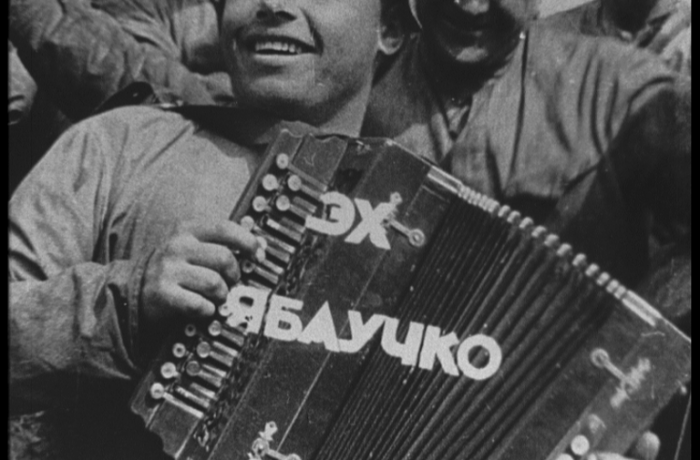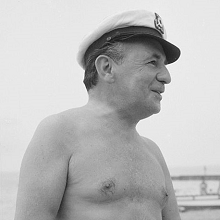
Documents of the Epoch is the most famous film released by the All-Ukrainian Photo and Cinema Administration (Ukrainian: Vse-Ukrains'ke Foto Kino Upravlinnia, VUFKU), based on 40,000 metres of chronicles shot between 1917 and 1922. Leonid Mogylevsky based the film on supposedly ideologically outdated archive footage (‘pieces of positivity’ and pre-revolutionary ‘garbage’) which had been preserved in the archives of the VUFKU film studios or bought out from other film organisations and individuals. Although the chronicles in the film are squeezed through the sieve of ideologised intertitles, which sometimes explain and sometimes falsify historical events, Documents of the Epoch remain an unprecedented and very valuable visual evidence of the most dramatic pages of Ukrainian history in the 20th century. A closer look at the mechanisms of working with senses in the film Documents of the Epoch will be facilitated by the soundtrack performed by the band Son Sovy, in which the musicians will try to make new emphases in contrast to the titles and the content of 1928.
You can buy tickets for music cinema performance that is held on March, 30 HERE.

Leonid Mohylevsky (Léonide Moguy) (1899–1976) was a director and a writer, one of the pioneers of Ukrainian film chronicles. Together with Dovzhenko, he initiated the creation of the first library of Ukrainian films. In 1927, the Department of Film Chronicles, headed by Mohylevsky, began releasing The Week in Film, and then also the Film Journal of the VUFKU – famous selections of fresh newsreels, ‘timely and day-to-day’. In the late 1920s, he emigrated to France, and during World War II he left for the US. Later, he returned to Europe and filmed in France and Italy. After leaving the USSR, he made around 20 films. The films he made as Léonide Moguy, Paris after Dark (1943) and Action in Arabia (1944), were mentioned by Quentin Tarantino as among the films which inspired him to create Inglourious Basterds (2009). He puts these films in the same list as the works of Jean Renoir and Fritz Lang.
Selected: Two Women (1940), Paris after Dark (1943), Action in Arabia (1944), Tomorrow Is Too Late (1950), Man Wants to Live (1961)